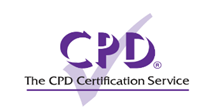We feel that the parents grew in confidence and self-belief after attending the Family Links parenting programme. Parents were more able and willing to communicate with staff and discuss issues regarding their children. Parenting programmes offer so much to the whole school community and we see the great need in our school so hope to continue this valuable work.
Parenting
Some communities and ethnic groups may have differing approaches to parenting and usually, this is fine. But it is important to remember that we are living and working within the confines of UK legislation, where some practices are not regarded as acceptable and sometimes are not considered legal. Today, Children are also subject to many challenges and issues in the forever growing society. Parents are not prepared to understand teenager behavior and the changes that take place during adolescence and tend to use what they know best based upon what they have experienced which is culture not religion. This is also underpinned by their own beliefs of how they were raised and disciplined.
Parents struggle to create a balance and the right approach in how to deal with difficult situations as they arise, and our service is set-up to support their understanding through our tailored bespoke programs which are designed based upon the family’s needs; As every family is different and individual.
Parents play a significant part in helping children to define a sense of identity, culture, religion but at times, need to feel confident in their ability to bring up their children in a positive way. That’s why it is so important for all parents, in particular the Muslim and South Asian communities, to be equipped with positive strategies and tools of how to deal with issues they face in everyday life with their children growing up in the UK.
The Islamic perspective
We explore the Islamic perspective on parenting issues: And explore topics on power and control and force which is considered unacceptable in Islam. Direct quotes from Islamic values help families to explore their own beliefs and values which are usually based upon culture not Islam. In addition, the programme topics address punitive methods, the effects of anger and kinds of touch that are hurtful and leaves a physical and emotional impact on a child’s life.
Families also have an opportunity to explore the safeguarding law in the UK which is the same as Islam, address what honour-based violence is and the effects on a young person long term. Parents will also learn how to create a balance between their own beliefs and that of the young teenager growing up in the UK.





